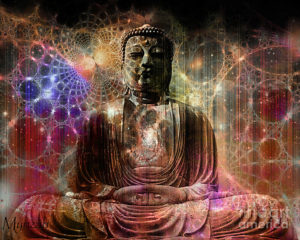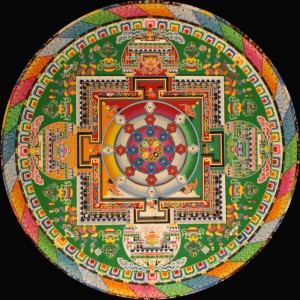As a counselor I am discovering that so many people are struggling now, from the richest to the poorest…Perhaps the most widespread feelings I am encountering are disappointment, a lack of hope for the future, and a gnawing sense of non-completion. The great temptation of being human is to try to fix ourself by looking outwardly and thinking, “If I only had more money, if I only had the perfect partner, if my dreams came true, if society were different, THEN I would be complete.” This strategy unfortunately only sets us up for deeper levels of disappointment because it attempts to fix an inherently spiritual or inner issue with outer things, something that can NEVER work.
I have learned that you can only heal from such a predicament when you understand that your soul is being tested. A spiritual test can only be “passed” when you shift from an outer perspective to an inner one, when you realize that your current struggle is actually an opportunity for you to spiritually evolve. For a true test forces you to confront your own insecurities and emotional issues, the blockages and impediments that have been holding you back from true joy for your entire life. For instance, instead of seeking fulfillment through an outer relationship, when you are tested you confront the question, “Why am I not happy with myself when I am alone?” Instead of seeking completion by meeting your list of goals, when you are tested you confront the question, “Why do I not feel complete and totally loved just as I am?”
When you face these difficult questions directly, you will find that only God can complete you. Paradoxically, you will find that you have always been complete, and that your sense of non-completion is merely based on the illusion of the ego. When everything in your life seems to be breaking down, you can learn to find comfort in the eternal aspect of you that never changes, that is Peace Itself. When you finally give up on trying to fix yourself outwardly, and find peace, joy, and love in the ever-present reality of God whatever your circumstances happen to be, THEN the outer will begin to change as well. This is the great secret embedded in Jesus’ saying, “Seek first the Kingdom of God (Spiritual Enlightenment or God-Consciousness) and His righteousness (work on your issues and how you treat people), and all these things (your outer needs and desires) will be given to you as well.” (Matthew 6 – parentheses added).
Once you understand this principal, you will actually be grateful for your suffering or testing, because you will realize it is purging you of everything that is obstructing real happiness from manifesting in your life. You will thank God for every closed door and every “disappointment,” and you will embrace the Real Shalom which can only be found in the spiritual life. You will realize that by blocking what you thought you wanted from happening, God was merely drawing you closer to Himself because He loves you too much to allow you to chase after counterfeit versions of happiness (or idols).
Paradoxically, and according to Jesus the Messiah, when you have passed the test, the outer will ALSO mysteriously start to change as well in accordance to your level of surrender! A test is therefore a priceless opportunity to seek fulfillment in That which can actually fulfill you, and to prove to God that your devotion to Him is not based on mere circumstances or your ego getting its way. It is an opportunity to turn to prayer, meditation, and the Grace of God to be your anchor in times of trouble. Or you can become bitter, turn to the world to fulfill you, and only end up more disappointed in the end. The choice, alas, is ours! – Jeffrey

 The giant Buddha statue in Varanasi, India, commemorating the spot where the Buddha first revealed the 4 Noble Truths to humanity. I was there is 2015.
The giant Buddha statue in Varanasi, India, commemorating the spot where the Buddha first revealed the 4 Noble Truths to humanity. I was there is 2015.

 – Krishna was an earhtly prince who did many practical things to help the people of his time, but was always established in Self-Realization through yoga meditation.
– Krishna was an earhtly prince who did many practical things to help the people of his time, but was always established in Self-Realization through yoga meditation.